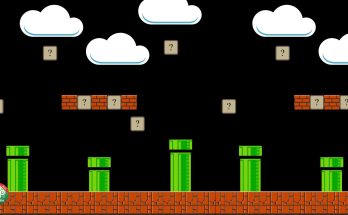Language fluency is a great skill to acquire. It helps you express your ideas clearly, communicate effectively, and navigate through various environments. Grammar exercises and other traditional learning methods are useful.
But one way to make the learning process more interactive and enjoyable is by incorporating word games into it. Word games are a good practice platform for language skills, vocabulary reinforcement, improved grammar, and enhanced creativity.
There’s a lot of upside to using word games as a language learning tool. This article will explore those benefits and provide some popular word game examples suitable for all proficiency levels.
The Benefits of Word Games for Language Fluency
1. Vocabulary Expansion
Improving vocabulary is one of the biggest upsides of word games. Activities such as Scrabble, Boggle, or crossword puzzles like Word Zenith require players to form words using specific letters or clues which often leads them into exploring new vocabularies.
Players have to find out what unfamiliar words mean when they encounter it while playing the game too – this causes “incidental vocabulary acquisition”. This enhances their ability to understand a wide variety of words as well as retain them in memory through repeated meaningful exposure.
2. Enhanced Spelling & Pronunciation
Spelling words correctly usually comes with points in most word games. Which in turn improves spelling proficiency and enforces correct pronunciation when spelling certain words out loud every time you play these games with friends or family members.
Activities like Hangman or spelling bees challenge players on accurate spelling; this requires them to pay attention to patterns formed by phonetic sounds and orthographic rules when trying out different letter combinations so they can think about how each syllable is articulated properly.
3. Grammar Reinforcement
A lot of grammar rules are incorporated into most word games’ mechanics nowadays – this provides learners opportunities to reinforce grammatical concepts in real-life situations rather than just memorizing theories from textbooks that don’t help much when actually conversing in a foreign language later on down the line.
Mad Libs for example, requires players to fill in the blanks with appropriate parts of speech such as nouns, verbs, adjectives and adverbs. The more you play games like this, the better your understanding of sentence structure and syntax becomes.
Word association games on the other hand encourage players to make connections between words based on grammatical relationships such as synonyms, antonyms or word families.
4. Contextual Learning
Whenever possible, it’s always better to encounter new words in meaningful contexts rather than just memorizing isolated lists out of nowhere. That’s what word games do best – provide a context-rich environment for language practice. As you play crosswords or unscrambling letter games with certain themes that revolve around animals, food or travel for example; you get used to associating certain words with specific situations which helps you retain them in memory much longer.
5. Cognitive Benefits
Aside from all those linguistic advantages mentioned above, word games offer various cognitive benefits too that support language learning. Many of these games require strategic thinking, problem-solving skills and mental flexibility to take down your opponents – all of which stimulates cognitive processes such as memory retention ability, attention span growth and executive function enhancement.
Popular Word Games for Language Learning
1. Scrabble
Scrabble is a traditional word game where you make words from letter tiles on a board to score points. It promotes strategic thinking and vocabulary usage. Scrabble is suitable for players at any level, so it’s great for expanding your knowledge no matter how good you are.
2. Boggle
In this fast word search game, players compete to find as many hidden words as possible on a grid of cubes. You have to connect adjacent letters to build up the words, and longer ones earn higher points. This game is excellent for strengthening your vocabulary and pattern recognition skills.
3. Word Zenith
We’ve all seen these puzzles in newspapers before! The goal is to fill the grid with appropriate words that fit clues both horizontally and vertically. Achieving this takes some critical thinking and reasoning, but Word Zenith come in different difficulties so that learners can work their way up.
4. Hangman
It’s a simple guessing game that ensures spelling accuracy by keeping track of incorrect letters guessed by drawing a hanging stick figure until it’s complete (don’t worry, no harm done!). Hangman teaches spelling, vocabulary, and deductive reasoning skills through an amusing context.
5. Mad Libs
Fill-in-the-blank fun! Randomly insert words into hilarious prewritten stories made with context clue freedom in mind. Players take turns bestowing nouns, verbs, adjectives, and adverbs without knowing the story’s direction ahead of time—always resulting in comical nonsense! Mad Libs enhances creativity exploration along with understanding grammar’s structure.
Using Word Games to Learn Language
1. Make Them Part Of Teachings
Supplementing traditional learning methods paves the way for interactive experiences! Teachers can integrate word games into curriculums with warm-up activities or review exercises that appeal to various learning styles/preferences—catering to multiple levels/abilities at once.
2. Digital Resources Are The Way To Go
Digital technology has made many word games easily accessible to learners globally. Users can customize online platforms and mobile applications specifically for their language of choice, skill level, or preference—expanding the possibilities available in just one touch.
3. Keep The Learning Environment Positive
The key to unlocking the most effective way of learning with word games is to create a supportive environment. By encouraging students to engage with challenges while celebrating progress every step of the way—teachers can instill a lifelong love of language learning by reminding them that it’s okay to take enjoyment and accomplishment from it too!
4. Collaboration And Competition Are Key
Learners have more fun when they work together! Group activities like team-based Scrabble tournaments encourage communication, interaction, and peer support. Educators should promote collaboration and healthy competition through engaging social dynamics—getting students excited about language learning as well as enhancing their understanding.
Read More: Why Our Brains Are Obsessed With Word Games and Puzzles
Conclusion
Language games are fun and they work. They engage learners in ways that other things just can’t. Whether it’s about expanding vocabularies, reinforcing grammar or helping with cognitive skills, word games offer plenty to everyone as long as they’re willing to learn. The best part is that we now live in a digital world where everything has an app, so don’t hesitate to use them all and see what works best for you. All that matters is getting started and embracing this new way of learning!




